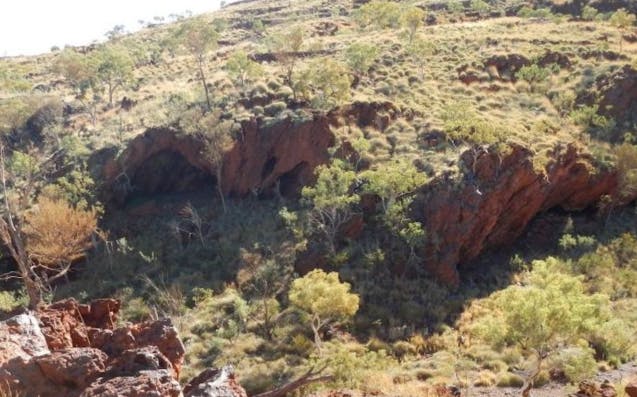
Rio Tinto CEO Jean-Sébastien Jacques and two senior executives will step down, four months after the mining giant destroyed a 46,000-year-old Aboriginal site.
The three bigwigs will all depart the company within six months, the Rio Tinto board said on Friday. Jacques himself will stay on as CEO until March 31 or until his successor is appointed, whichever comes first.
It comes four months after Rio Tinto legally blew up two culturally significant rock shelters in the Pilbara region of Western Australia. It was against the wishes of the land’s traditional owners, the Puutu Kunti Kurrama and Pinikura (PKKP) people, and left them “distressed” and “devastated”.
“Our people are deeply troubled and saddened by the destruction of these rock shelters and are grieving the loss of connection to our ancestors as well as our land,” Puutu Kunti Kurrama Land Committee Chair John Ashburton said earlier this year.
“Losing these rock shelters is a devastating blow to the PKKP Traditional Owners.”
Rio Tinto claimed it believed it had the PKKP’s consent until it was too late to stop the blast safely, and “deeply regrets” the events that led to the sites’ destruction.

Initially, Jacques and the two senior execs – iron ore division boss Chris Salisbury and corporate affairs boss Simone Niven – were docked $7 million off their 2020 bonuses, after a Rio Tinto board review found they had to bear some responsibility.
However, those bonus cuts did not satisfy investors and Indigenous groups, who felt docking of bonuses fell significantly short of holding the trio truly accountable. The Sydney Morning Herald reports that multiple Rio Tinto insiders laid the blame on Jacques’ leadership, who made “sweeping changes” to Rio Tinto’s Aboriginal relations functions when he became CEO in 2016.
Part of Rio Tinto’s response is to commit to “listening, learning and changing”, as well as dollar figures to the tune of $50 million to attract and develop Indigenous professionals in its company.
“We know we cannot change the past. But we are absolutely committed to doing better in the future,” it said earlier this year.
Sure, okay. But for now, to these three execs, we say: bye, bitch.



